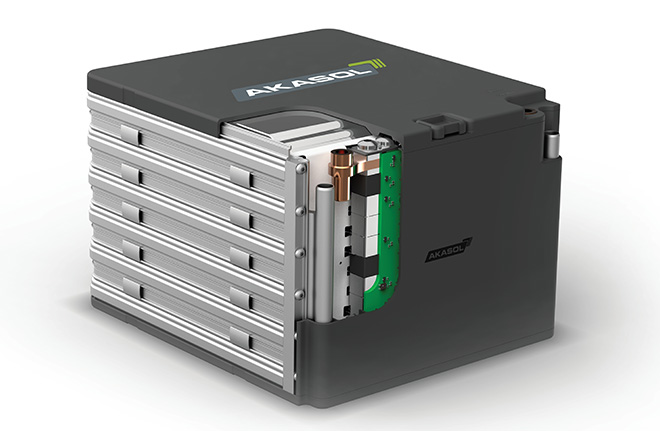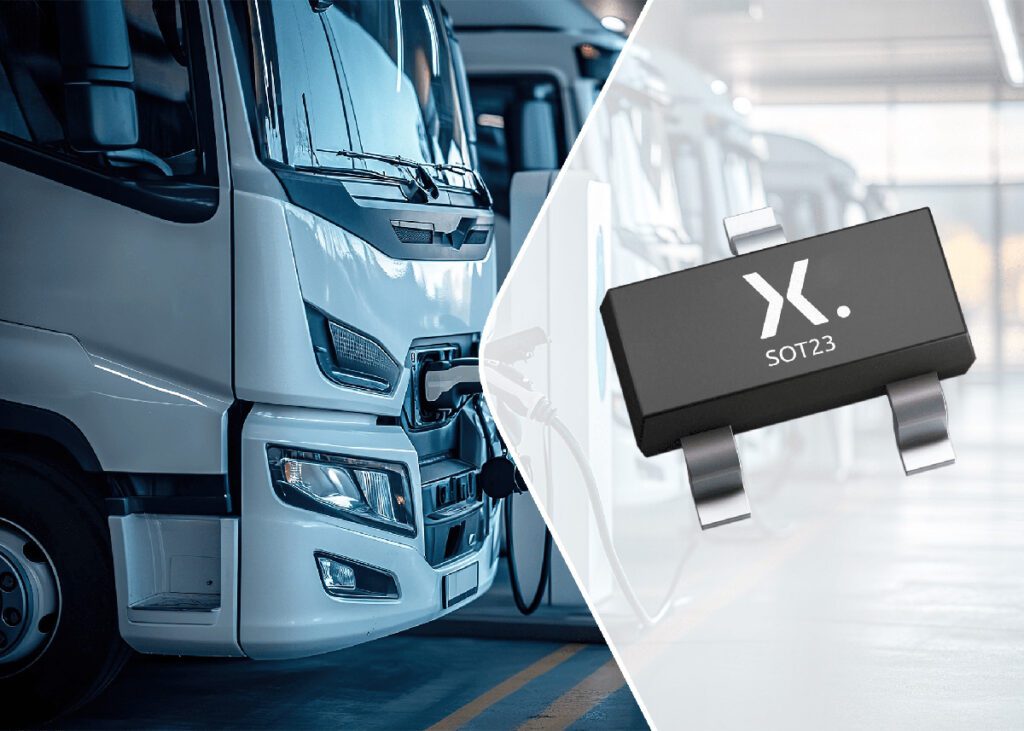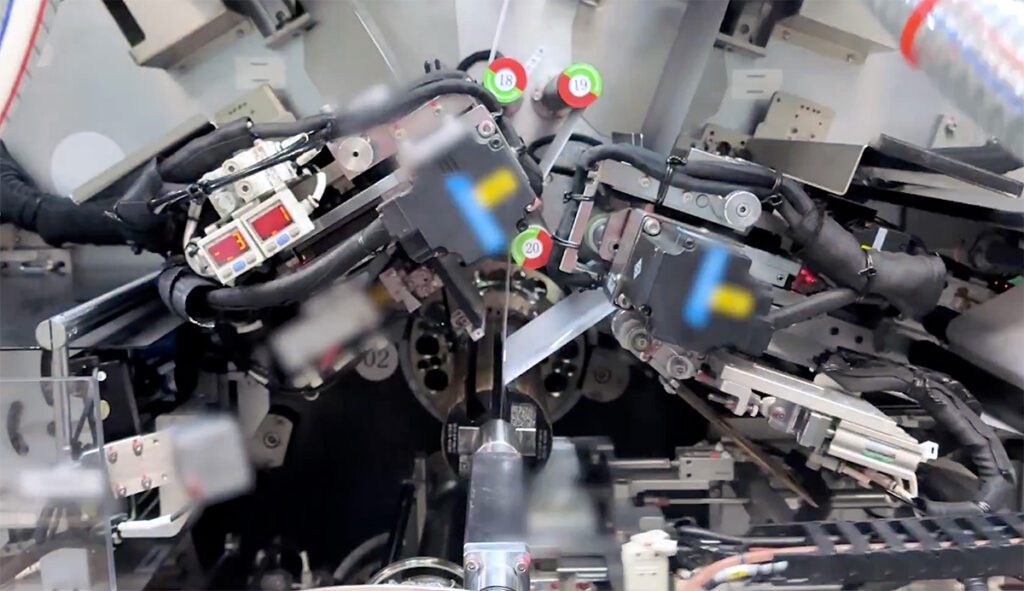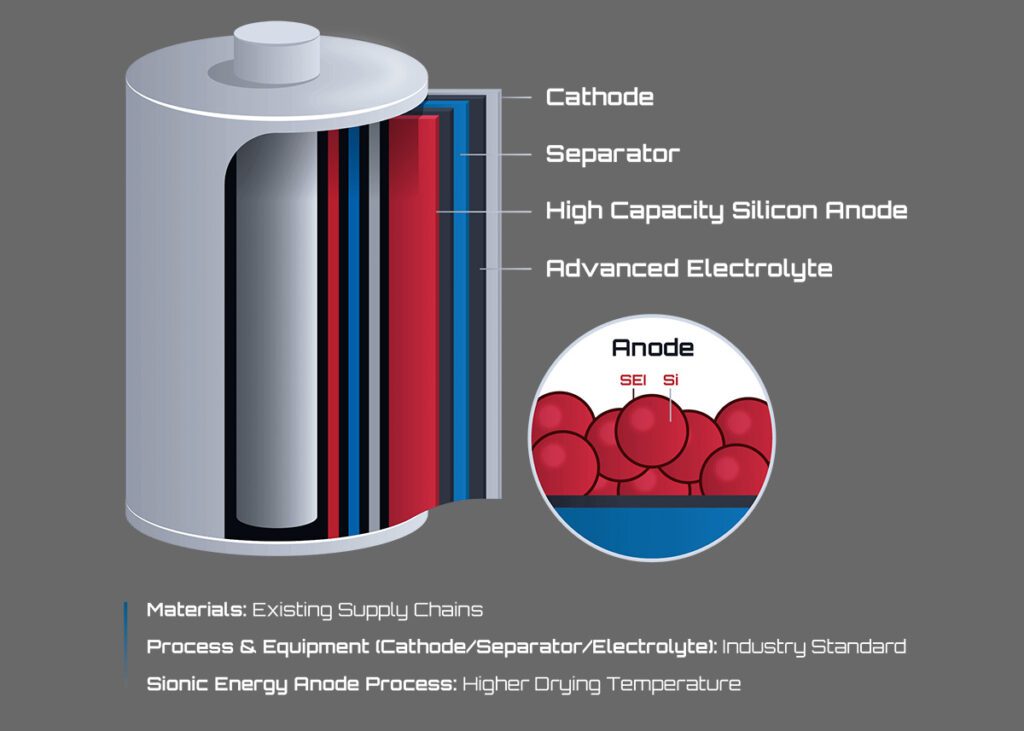German battery builder AKASOL subjected the latest generation of its battery modules, AKAMODULE 46Ah and 53Ah, to an eight-month endurance test featuring a range of brutally extreme conditions. The test showed service life to even longer than expected. At 50 to 55 degrees, the battery components worked for 1.5 years in full cycles at a constant load of 100 A.
“The AKAMODULE 46Ah and 53Ah models go far beyond the service life specified by the manufacturer of the battery cells, exceeding them by up to 50 percent,” said Dr. Björn Eberleh, Head of Project Management, Testing and Service. “This is due to the liquid-cooled module developed in-house and the homogeneous integration of the cells. In a typical application, such as a fully electric city bus, the battery would still be in service after it reaches the million-kilometer mark.”
Over the life of a battery pack, disparities in the production of the cells and various operating conditions lead to the cell charges within a particular energy storage unit becoming uneven, so the battery management system must bring the individual cells to the same charge level.
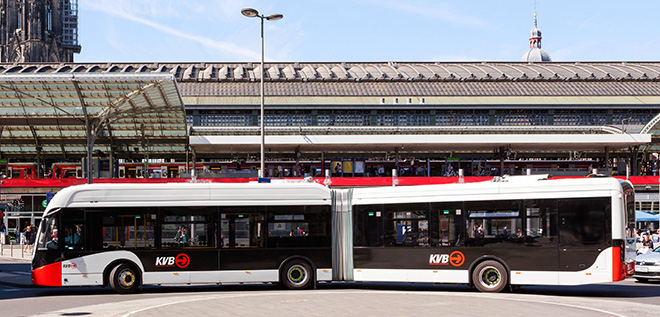
“Our 46Ah battery module only had to be rebalanced once during the entire test period, which consisted of 8,000 full load cycles,” said Dr. Eberleh. “Usually, battery management systems have to perform the same balance control over ten times more often to ensure that the cells deteriorate evenly and guarantee that full capacity continues to be available.”
“Even after over 8,000 full load cycles for the 46Ah and 3,000 full load cycles for the 53Ah, the modules were able to retain around 80 percent of their original capacity,” explains Dr. Eberleh. “They were even able to continue to run on a residual capacity of 30 percent, thereby enabling a total of 15,000 cycles to be completed. The uniform deterioration of the individual cells is another satisfying result, as this significantly reduces the loss of capacity in the assembly. This means that the end of the battery’s service life is delayed until much later on.”
Source: AKASOL







